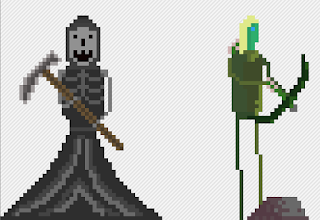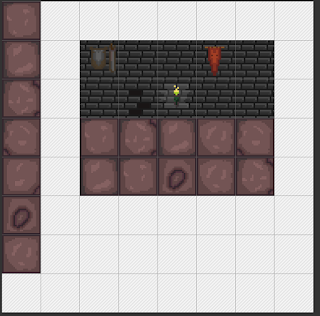Hey everyone,
I've been meaning to do this post for a while - however I held off it whilst I was still doing some reading. I wanted to list a few books I've gone through and recommend as they have many or some concepts that may be of interest to be entrepreneurial individuals or game developers. I will list what books I have gone through, as well as those I am currently reading. I do have a number of books I plan on reading the coming months - but I will talk of those next time.
Recommendations
Books I have finished
The $100 Start-up by Chris Guillebeau
For anyone looking to start up a company but is afraid of what many perceive to be a highly expensive activity, the $100 start-up shows people who have invested a lot of time and effort - and sometimes little money. Though that is not why I recommend the book per say.
The book speaks of a lot of concepts that individuals with little or no background on business may be able to relate to or understand. It speaks a lot about various ways to go about planning and thinking about your idea and building a viable plan of action towards it. It won't provide you with the in-depth information than if you were to do more research on the areas talked about - but it will definitely give you a very good basis to start with, not to mention a starting point and some much needed inspiration.
The Entrepreneurial Blueprint by Peter Voogd
This book focuses a lot on what I believe entrepreneurship really needs. It focuses more on yourself - be it on your perspective, your ideas and your attitude. Being a master a business may get you somewhere - but even then you probably got there or what kept you there is your character. This book (or audio book as I have gone through an audio book version of it) provides you with a very good perspective - and whilst many of which I had already felt like I knew from my own research; I still found a number of really useful concepts that I believe in today.
I highly recommend this book - it offers something stronger than a business book would towards achieving what you want to achieve. It's focus is more on you, the entrepreneur, rather than you and your business idea. Something that may often be overlooked.
Currently Reading Through
Designing Games: a Guide to Engineering Experiences by Tynan Sylvester
This is currently the first book that is solely focused on game design I am reading. It is shaping and providing me a very good foundation on how to think about designing games. Up to writing this I have just started the 3rd Part - which is around page 367. Based solely on what I have read until now I do recommend this book, although I will likely make a better recommendation once I've finished it.
The Personal MBA by Josh Kaufman
As the name might suggest - this book's aim is to provide a more personalised education towards business that would be better than going to a university to get the degree for business or similar. It definitely caught my attention when I was browsing the shelves and decided to give it a go. I am not very far in yet so I cannot make a recommendation as of yet but I do like what I have read so far.
The Business Book
This is more like an encyclopaedia if you will of business concepts. It covers a wide area of topics and gives a fairly nice and simple way to explain them. If you are someone interested in business and may not have much experience in the area - I think it can be useful for reference. As a business student, I am finding it very interesting and useful for my studies - so I can imagine it being useful for other business students as well. It doesn't go much in depth on topics, but it offers the basis and you can simply look up the rest. It has nice useful diagrams to explain various elements and I have discovered a number of things which I was unaware of before - even as a business student. I have only just started reading through it - so as with the Personal MBA I cannot place a recommendation yet - however it seems to be quite useful so I do say check it out and see if it interests you.
I hope you found any of these useful - even if you found just one useful, I am definitely glad that is the case! I will come back and write more as I go along and give you my views on the ones that I read and go through!
Until next time,
Dylan




